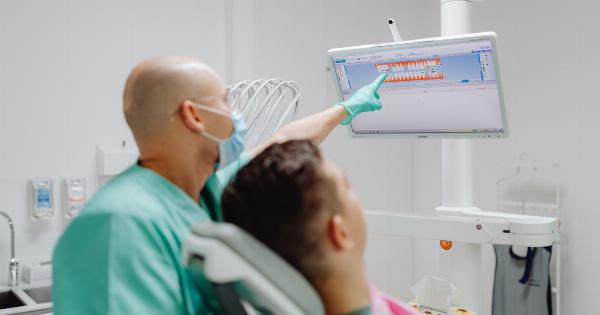Mouth ulcers are small, painful sores that develop in the mouth and on the gums, tongue, or inside of the cheeks. They can be very uncomfortable and make eating, drinking, and talking difficult.
Most people will experience a mouth ulcer at some point in their lives, but for some, they can be a recurring problem.
What Causes Mouth Ulcers?
Mouth ulcers can be caused by a variety of factors, including:.
- Injury to the mouth, such as from accidentally biting your cheek or tongue
- Poor dental hygiene
- Certain medications or medical treatments
- Nutritional deficiencies, including iron, vitamin B12, and folic acid
- Hormonal changes, such as during menstruation or pregnancy
- Stress or anxiety
- Immune system disorders
- Herpes simplex virus
Types of Mouth Ulcers
There are three main types of mouth ulcers:.
- Minor: The most common type of mouth ulcer, minor ulcers are small, round or oval-shaped and typically heal on their own within a few days to a couple of weeks.
- Major: These are larger and deeper than minor ulcers and can take several weeks to heal. They may leave a scar once healed.
- Herpetiform: These ulcers are small and round but occur in clusters of up to 100. They are the least common type of mouth ulcer but can be the most painful.
Symptoms of Mouth Ulcers
Mouth ulcers can cause a range of symptoms, depending on their size and location. Some common symptoms include:.
- A painful, open sore in the mouth
- A burning or stinging sensation around the ulcer
- Swelling or redness around the ulcer
- Bleeding from the ulcer
- A white or yellowish coating on the ulcer
- A fever or swollen glands, if the ulcer is caused by an infection
Treating Mouth Ulcers
Most mouth ulcers will heal on their own within one to two weeks. However, there are some things you can do to help speed up the healing process and ease any discomfort:.
- Practice good oral hygiene: Brush your teeth twice a day, floss regularly, and use an antiseptic mouthwash to keep your mouth clean and prevent infections from developing.
- Rinse your mouth with salt water: Mix a teaspoon of salt in a glass of warm water and swish it around your mouth for 30 seconds before spitting it out. This can help soothe the ulcer and reduce inflammation.
- Apply a topical treatment: Over-the-counter creams, gels, or sprays can help ease pain and speed up the healing process. Some contain anaesthetic agents to numb the area, while others contain antiseptic or anti-inflammatory ingredients to reduce inflammation and prevent infections.
- Avoid irritating foods: Spicy or acidic foods can irritate mouth ulcers and make them more painful, so it’s best to avoid them until the ulcer has healed.
- Manage pain: Acetaminophen or ibuprofen can help alleviate pain and reduce inflammation. However, avoid aspirin, which can increase the risk of bleeding.
- Visit your dentist: If your mouth ulcers are severe or recurring, your dentist may be able to prescribe a stronger medication or recommend other treatments to help manage your symptoms.
When to See a Doctor
In most cases, mouth ulcers will heal on their own within one to two weeks, and you can manage your symptoms with home remedies and over-the-counter treatments. However, you should see a doctor or dentist if:.
- You experience frequent or severe ulcers
- Your ulcers are large or extremely painful
- You have additional symptoms, such as difficulty swallowing or a high fever
- Your ulcers don’t improve within two weeks or keep coming back
- You have a weakened immune system
Your doctor may recommend additional testing, such as blood tests or a biopsy, to help determine the underlying cause of your ulcers and the best course of treatment.
Preventing Mouth Ulcers
While it may not be possible to avoid all mouth ulcers, there are some things you can do to help prevent them from developing:.

























